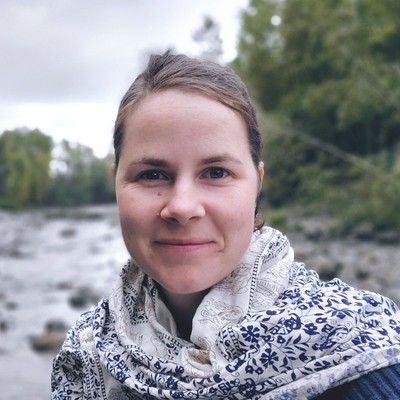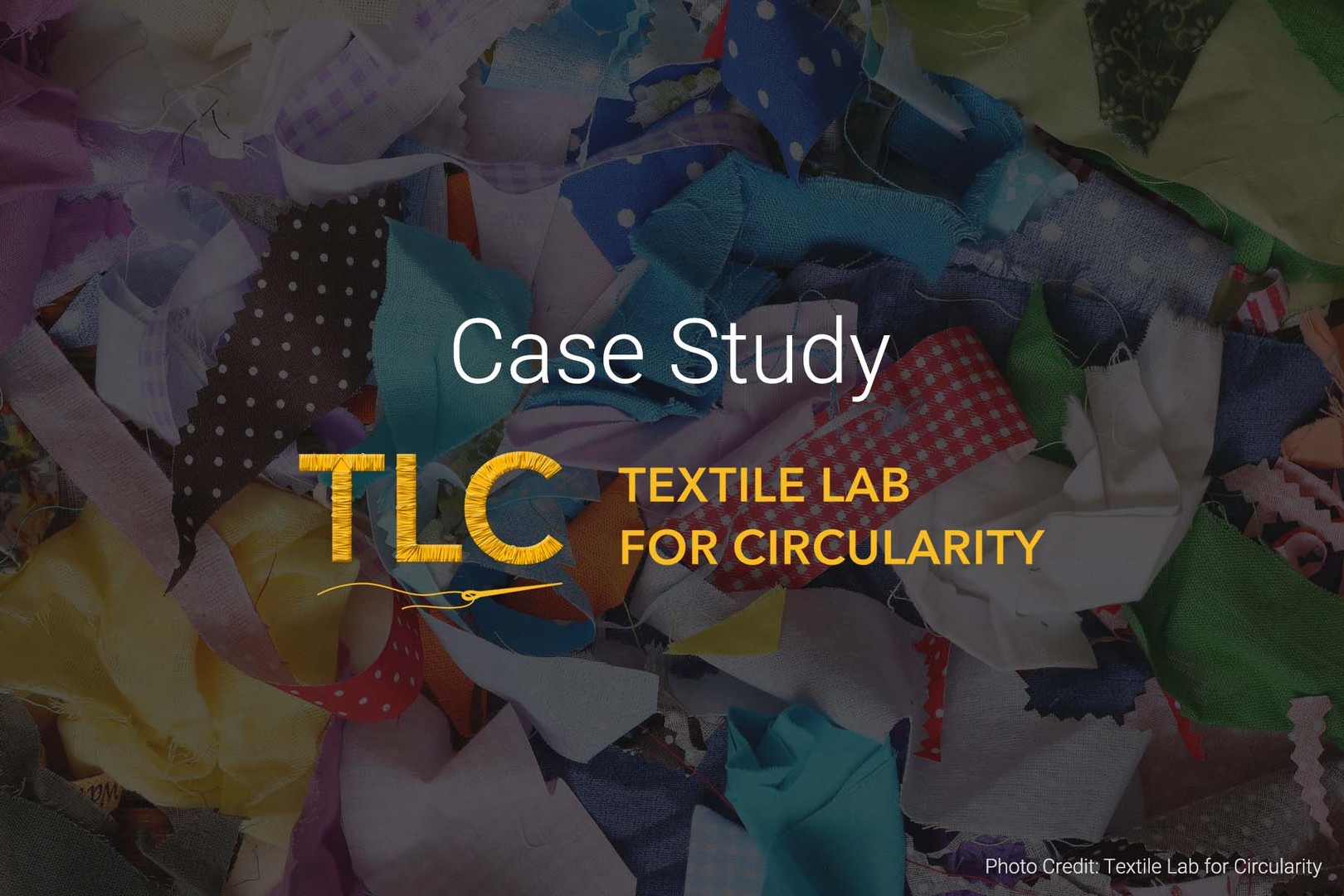Textile Lab for Circularity Case Study
Overview
We Enriched Educational Experience, Participant Engagement, & Learning Outcomes
Textile Lab for Circularity is a collaborative social innovation organization chartered by Leverage Lab, a consultancy specializing in systems change, and Society Promoting Environmental Conservation (SPEC), a nonprofit promoting urban sustainability through educational and advocacy initiatives. They connect unlikely allies across BC to divert fashion and textile waste from landfills and move the industry towards circularity.
Textile Lab engaged Smith Assembly to help update curriculum and content in the first workshop of their ‘Building Your Circular Strategy’ series. The Framework for Strategic Sustainable Development (FSSD), which they employ as the basis of their curriculum, had been updated since their team was trained in its use. What had been a single principle about equality and the social aspects of sustainability, had been expanded into Sustainability Principles 4-8. Textile Lab initially wanted guidance on sensitively communicating the new principles, compelling real-world examples, and actionable implementation/evaluation strategies.
Our contributions in these and other areas were so valued by Textile Lab’s team, they extended our contract three times so that we’d ultimately contribute to all four workshops in their series.
Our Engagement
Problems & Challenges
- Need deeper and updated context on the theory and implementation of Sustainability Principles 4-8 (related to the social aspects of sustainability) of the Framework for Strategic Sustainable Development (FSSD)
- Need to understand and apply current best practices for Justice, Equity, Diversity, and Inclusion (JEDI) to curriculum and instruction methodologies
- Seek a deeper understanding of learning styles and their corresponding instructional methodologies for best-in-class delivery of course content and accompanying exercises
- Need external review of and updates to participatory instruction methodologies for online environments
- Seek an outside perspective on existing engagement plan as well as support for increasing participant engagement and workshop/series efficacy
Scope
- Learn about Textile Lab and their ‘Building Your Circular Strategy’ workshop series
- Review the overall structure of and delivery plans for their workshop and series
- Draft curriculum and content (course materials, case study examples, homework assignments, implementation/evaluation strategies, and references) for FSSD Sustainability Principles 4-8 in a structure/style similar to that for SPs 1-3
- Co-revise deliverables iteratively with team
- Provide real-time and asynchronous support to team on FSSD Sustainability Principles 4-8 and JEDI through discussions, Q&A, and collaborative documents
- Provide tactful, helpful, and actionable feedback (on curriculum and content plus overall structure and delivery) to increase efficacy of online education for different learning styles — ultimately for each of the four workshops and the series as a whole
- Share thought leadership and subject matter expertise on a variety of other requested topics
How We Did It
Our Approach & Solution
Our engagement began with a kickoff to get to know Textile Lab’s team, organization, and planned workshop series. We familiarized ourselves with their existing curriculum and content to better understand the desired learning outcomes and get a feel for how each workshop and the series as a whole would be structured.
As requested, we shared our initial impressions of their plans, curriculum, and content. We recommended ways they could: better address the three main learning styles (visual, auditory, and kinesthetic); incorporate participatory instruction methodologies better suited to online environments; and more deliberately guide a group of participants, each of who had a different level of understanding, to a place where they all could create circular strategies on their own (a process described by Bloom’s taxonomy pyramid).
Then, we dove into our tasks related to FSSD Sustainability Principles 4-8 and JEDI. We created a first draft of course materials, case study examples, homework assignments, implementation/evaluation strategies, and references. Afterwards, we answered questions and iteratively revised our deliverables with their team. Along the way, we also proactively shared additional info and recommendations for how to further enhance their workshops. This included: how the newer principles relate to the original set; how the principles relate to ecological and social systems; and how best to teach these kinds of concepts (and sustainability as a whole) given our growing understanding of the global north’s role in colonialism, supremacy, and trauma.
Immediately after our engagement, Textile Lab extended our contract (ultimately three times in a row so that we’d contribute to every workshop in their series). Our deliverables, subject matter expertise, and thought leadership exceeded their expectations. We had also devised an efficient and effective way to collaborate that streamlined billable hours.
❝ [Smith Assembly] answered our call to improve accessibility, and went above and beyond to advise us on practical ways to translate the complexity of our material into more digestible exercises, considering a range of learning styles. Working with Liz and Ta, we benefitted from their rapport, professionalism, and flexibility with our changing and emergent needs. This modeled for us some of the principles for how our team would also like to act in our own consulting services. ❞
— Emily McGill, Collaboration Strategist
The Value We Provided
Our Impact
Collaborating with us on the first workshop in their ‘Building Your Circular Strategy’ series enriched the educational experience and learning outcomes for Textile Lab’s participants. It also benefited their organization. So much so, that they extended our contract three times and ultimately asked us to co-create all four workshops in their series with them.
Their team learned about FSSD Sustainability Principles 4-8 and how to integrate that new knowledge with their deep understanding of the original principles. They received sets of curriculum and content for each new principle along with guidance on how to improve the efficacy of their online lessons and asynchronous homework. In addition, they also mastered ways to communicate sustainability in the context of Justice, Equity, Diversity, and Inclusion (JEDI).
Perhaps most importantly, during our engagement, Textile Lab’s team practiced a variety of techniques for improving accessibility, inclusion, and equity. Being shown how to incorporate these learnings into their design and development practices, not only improved the success + impact of their workshop series but has already begun to serve them well in a variety of other initiatives.
Results For Build Up
- Mastered the new FSSD Sustainability Principles 4-8
- Received sets of course materials, case study examples, homework assignments, implementation/evaluation strategies, and references for each of the new principles
- Mastered ways to communicate sustainability in the context of Justice, Equity, Diversity, and Inclusion (JEDI)
- Learned how to better support visual, auditory, and kinesthetic learning styles
- Learned participatory instruction methodologies better suited to online environments
- Learned ways to guide people from remembering and understanding lessons, through applying and analyzing knowledge, to creating new solutions (Bloom’s Taxonomy Pyramid)
- Practiced and implemented ways to improve the efficacy of online lessons and asynchronous homework by questioning the team’s assumptions and providing multiple avenues for participant engagement
- Improved accessibility, inclusion, and equity of each of the four ‘Building Your Circular Strategy’ workshops
- Strengthened the cohesiveness and quality of the ‘Building Your Circular Strategy’ workshop series
- Incorporated learnings into the organization’s design and development practices
- Translated learnings and outcomes from our engagement into other areas of their programming
- Attracted interest from new sponsors and collaborators
What Our Client Said

Invaluable Thought Partner
❝ Smith Assembly acted as an invaluable thought partner throughout the development of our first-ever Building Your Circular Strategy workshop series. Along with the hard knowledge upgrade they provided for our curriculum, we benefitted from their clear depth of knowledge and ability to sense, identify and communicate around our unseen gaps in our teaching methods. ❞
Emily McGill
Collaboration Strategist
